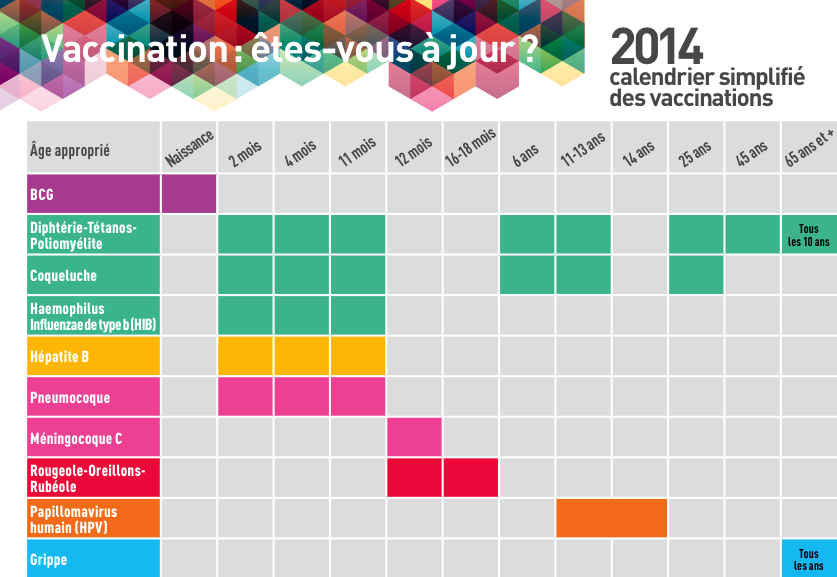The Constitutional Council will rule on March 20 on the constitutional nature of compulsory vaccination. Beyond this question, the vaccination schedule is distinguished by its complexity.

The vaccination obligation passes before the Constitutional Council. It is the subject of a priority question of constitutionality (QPC), filed by the lawyer of two parents of Yonne. Marc and Samia Larère refused to have their three-year-old daughter vaccinated against diphtheria, tetanus and polio, even though the law forced them to do so. Summoned in October before the correctional court of Auxerre, they decided not to let it go.
Measles epidemics
Marc and Samia Larère first argued that the different vaccines also protect against vaccine-recommended diseases – whooping cough, hepatitis B or meningitis. They then asked Sanofi Pasteur for vaccines that only immunize against diphtheria, tetanus and polio. But after receipt, they once again refuse to vaccinate their daughter. They accuse the products of containing a toxic product.
Justice decides to enforce the law. But does it comply with the French Constitution? This is the priority question of constitutionality filed by Me Emmanuel Ludot, icaunais parents’ council. The Sages will respond on March 20. If the vaccination obligation is deemed unconstitutional, the face of vaccination may well change.
The case of the Larère is emblematic of the growing tensions over vaccination. France is not isolated: anti-vaccinations are making their voices heard all over the world. The consequences are starting to emerge: in the United States and Germany, measles epidemics are raging.
A complex schedule
The French situation is particularly complex: the law establishes a distinction between compulsory and recommended vaccines. Only the DTP vaccine is defined as compulsory for the whole population. In addition, there are obligations applicable to certain professions. The BCG vaccine is thus imposed on social, medico-social and justice and prison administration professionals, and on staff in contact with children.
Hepatitis B vaccine is not an option for healthcare workers and laundry workers working with medical facilities. It is strongly recommended for a larger group of workers (laundry, catering, tattoo artists, sewers, garbage collectors, police officers, prison guards). Vaccination against whooping cough, influenza or measles is recommended.

2014 vaccine schedule
Reconciling the French with vaccination
This mandatory / recommended distinction may blur the lines, for example the case of the Larère, who accepted the DTP vaccine but refused the addition of strains against meningitis or whooping cough. In fact, only France and Italy have maintained the vaccination obligation. But these two countries are not doing much better than the rest of Europe in terms of vaccination coverage, recalls Professor Daniel Floret, president of the Technical Committee for Vaccinations at the High Council of Public Health (HCSP).
Listen to Prof. Daniel Floret, president of the CTV: “In Italy, medicine is regionalized. The Veneto has suspended vaccine obligations. There has been a small drop in coverage, but similar to other regions. “
The other foreign model, in the eyes of Professor Floret, is Finland. “This is the country where we vaccinate the best,” he explains. “The vaccination is done in the public sector, a model that is found in the UK, and it works pretty well. In France, the deputy PS Sandrine Hurel is responsible for formulating recommendations to remove the obstacles to vaccination. It should in particular be based on the opinion of the HCSP, delivered in September 2014, to study the possible lifting of the vaccination obligation.
.















